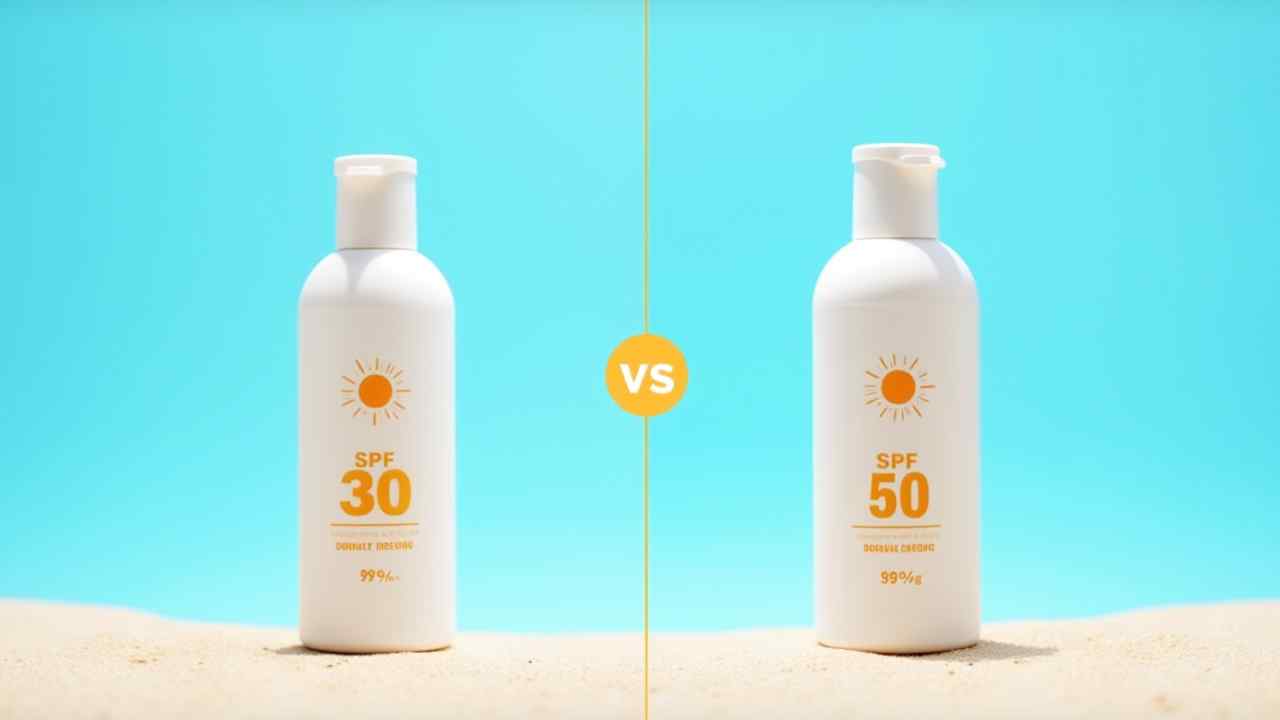
☀️ SPF 30 vs. SPF 50: Which Sunscreen is Actually Better for You?
☀️ SPF 30 vs. SPF 50: Which Sunscreen is Actually Better? ☀️
Choosing a sunscreen can be a confusing experience. You are faced with a wall of bottles. One of the biggest dilemmas is deciding on the SPF number. Should you grab the SPF 30, or is SPF 50 a much better choice? It is a very common question.
The higher number seems like it should provide a lot more protection. But the answer is more nuanced than you might think. The difference between SPF 30 and SPF 50 is surprisingly small. How you use the sunscreen is far more important.
This guide will break down the science. We will explain what the numbers really mean. This will help you make an informed choice for your skin's health. Let's clear up the confusion. 🤔
🤔 What Does the SPF Number Actually Mean?
First, let's understand the basics. SPF stands for Sun Protection Factor. It is a measure of how well a sunscreen protects your skin. Specifically, it measures protection against UVB rays. These are the rays that cause sunburn.
The best way to understand the SPF number is as a percentage. It shows how much of the sun's UVB rays the sunscreen blocks. Here is how the numbers break down:
- SPF 15 blocks approximately 93% of UVB rays.
- SPF 30 blocks approximately 97% of UVB rays.
- SPF 50 blocks approximately 98% of UVB rays.
- SPF 100 blocks approximately 99% of UVB rays.
As you can see, no sunscreen can block 100% of the sun's rays. The protection level increases with the number. However, the increases get smaller as the numbers get higher.
⚖️ So, What is the Real Difference in Protection?
This is the key to the SPF 30 vs. SPF 50 debate. The difference in UVB protection between them is only about 1%. This is a very small, incremental increase. The jump from SPF 15 to SPF 30 is much more significant.
Many people mistakenly believe that SPF 50 offers almost double the protection of SPF 30. This is not true. It is a concept of diminishing returns. The higher you go, the smaller the added benefit becomes.
For most people in everyday situations, an SPF 30 provides excellent protection. Dermatologists widely recommend it as the minimum for daily use. The slightly higher protection from SPF 50 is helpful. But it is not a massive leap in safety.
🧴 Does How You Apply Sunscreen Matter More Than the Number?
Yes, absolutely. This is the most important takeaway. The effectiveness of your sunscreen has less to do with the number. It has more to do with how you use it. Most people make two critical mistakes.
First, they do not apply enough. To get the full protection listed on the bottle, you need about one ounce (a shot glass full) to cover your body. Most people apply less than half of that amount. Applying an SPF 50 too thinly can give you less protection than applying an SPF 30 correctly.
Second, they do not reapply it. Sunscreen is not a "one and done" application. You must reapply it at least every two hours. You need to reapply more often if you are swimming or sweating. This is more important than the SPF 30 vs. SPF 50 debate.
✅ When Might SPF 50 Be the Better Choice?
While the difference is small, there are situations where SPF 50 is a better choice. The extra 1% of protection can be beneficial for certain people. It is a good idea to choose a higher SPF if:
- You have very fair skin and burn easily.
- You have a personal or family history of skin cancer.
- You are at a high altitude or near the equator.
- It gives you greater peace of mind.
Ultimately, the "best" sunscreen is the one you will actually use. Find a broad-spectrum sunscreen with at least SPF 30 that you like the feel of. Then, apply it generously and reapply it often. That is the true secret to sun safety. ☀️